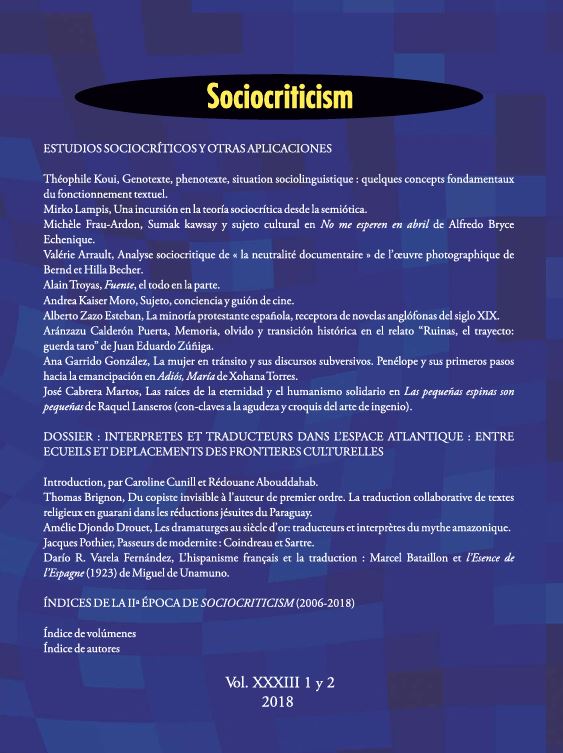WOMEN IN TRANSITION AND THEIR SUBVERSIVE DISCOURSES. PENELOPE AND HER INITIAL STEPS TOWARDS EMANCIPATION IN XOHANA TORRES’S ADIÓS MARÍA
Keywords:
Orphan of living parents, Penelope, diastraty, emigration, romance novels, transition of discourses, cultural subjectAbstract
Xohana Torres’s only novel Adiós María (1971) falls within the context of the exact midpoint in the transition of corporeal, social, spatial, symbolic and age discourses between two historical stages and two migration processes: the emigration to Europe and the internal migration, from the countryside to the cities. In this paper, we will analyse the figure of the orphan (a Penelope) of living parents, starting from the discursive variance caused by the synchrony of the nonsynchronous. We will start from Antonio Gómez-Moriana’s concept of diastraty, which will help us to understand how the irony, the parody, the sarcasm and the double meanings present in this novel are indicators of the grotesque conditions endured by the young women of the working class and a prelude of the navigator Penelope that will appear in the poetics works of Xohana Torres during the nineties.












